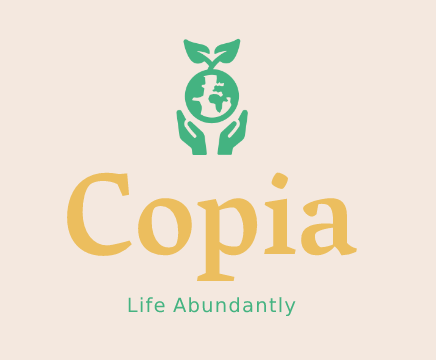Business Philosophy
Do good to do well
This company is operated based on the idea of the Triple Bottom Line, Kate Raworth's Doughnut Economics (which adds a social aspect to the wonderful research on planetary boundaries done by Johan Rockström from the Stockholm Resilience Centre and Will Steffen from the Australian National University), and finally the ideals of the benefit corporation.
Doughnut Economics in a nutshell. Humanity’s 21st century challenge is to meet the needs of all within the means of the planet. In other words, to ensure that no one falls short on life’s essentials (from food and housing to healthcare and political voice), while ensuring that collectively we do not overshoot our pressure on Earth’s life-supporting systems, on which we fundamentally depend – such as a stable climate, fertile soils, and a protective ozone layer. The Doughnut of social and planetary boundaries is a playfully serious approach to framing that challenge, and it acts as a compass for human progress this century.
The purpose of this company is to work toward the humane application of technology for the regeneration, and then preservation, of the natural environment and humankind. Simply seeking a profit will not accomplish that goal. Instead, we solely engage in projects that will not only bring financial benefits, but also improve the communities and environments where they are implemented, particularly those projects that empower Black, Brown, and Indigenous groups that have been systematically oppressed and discriminated against for generations.
Note: We are not yet a certified Benefit Corporation, but we would like to be one day. In the meantime we still honor the ideals behind the legal status
Office place Rules (thanks, Elon)
No large meetings unless they're of value to the entire audience. Keep them short.
Don't have frequent meetings unless the matter is truly urgent. Resolve it; then propose ending the meeting.
If you are not adding or receiving value from/to a meeting, walk out or drop off the call.
Don't use acronyms and nonsense words for objects, software, or processes.
Avoid any terms that require explanation because they inhibit communication.
Communicate directly with individuals rather than through a chain of command.
Any manager enforcing chain-of-command communication will be fired.
Don't follow any "company rule" that doesn't make common sense.
Ideas that increase productivity or happiness are always welcome.
Never do anything that would make a great Dilbert cartoon.
A selection of quotes to acquaint you with our worldview
“The first man who, having fenced in a piece of land, said “This is mine,” and found people naïve enough to believe him, that man was the true founder of [modern] society. From how many crimes, wars, and murders, from how many horrors and misfortunes might not any one have saved mankind, by pulling up the stakes, or filling up the ditch, and crying to his fellows: Beware of listening to this impostor; you are undone if you once forget that the fruits of the earth belong to us all, and the earth itself to nobody.”
~ Jean-Jacques Rousseau, Discourse on Inequality, 1754
“Hunter-Gatherers have thousands of wild sources of food to subsist on. Agriculture changed all of that, generating an overwhelming reliance on a few dozen food sources. Agriculture allowed for the stockpiling of surplus resources and thus, inevitably, the unequal stockpiling of them, stratification of society and the invention of classes. Thus, it has allowed for the invention of poverty.”
~ Robert Sapolsky
“If you want to build a ship, don’t drum up the men to gather wood, divide the work, and give orders. Instead, teach them to yearn for the vast and endless sea.”
~ Saint Antoine Exupéry from Citadelle, posthum, 1948 - The Wisdom of the Sands
“In principle, there are only two fundamental political viewpoints. That is, two contradictory ends of the 'political spectrum.' Those two principles are freedom and slavery.”
~ Mark Da Cunha
“Armaments, universal debt and planned obsolescence - those are the three pillars of Western prosperity”
~Aldous Huxley, Island
"Terrorism is the war of the poor and powerless. War is the terrorism of the rich and powerful."
~ Peter Ustinov
“It is wrong to create a mortgage-backed security filled with loans you know are going to fail so that you can sell it to a client who isn’t aware that you sabotaged it by intentionally picking the misleadingly rated loans most likely to be defaulted upon”
~ middle-aged woman in clip on the Daily Show at what looks to be New York Occupy movement... World of Opera Host Lisa Simione, and Caitlin Curioney??
"The three crucial factors of a growth economy are advertising, planned obsolescence, and credit"
~ Some guy from Pyramids of Waste aka ‘The Lightbulb Conspiracy’
“If the workers of the world want to win, all they have to do is recognize their own solidarity. They have nothing to do but fold their arms and the world will stop. The workers are more powerful with their hands in their pockets than all the property of the capitalists.”
~ Joseph James Ettor
Personal property is the effect of society; and it is as impossible for an individual to acquire personal property without the aid of society, as it is for him to make land originally.
Separate an individual from society, and give him an island or a continent to possess, and he cannot acquire personal property. He cannot be rich. So inseparably are the means connected with the end, in all cases, that where the former do not exist the latter cannot be obtained. All accumulation, therefore, of personal property, beyond what a man's own hands produce, is derived to him by living in society; and he owes on every principle of justice, of gratitude, and of civilization, a part of that accumulation back again to society from whence the whole came.
Thomas Paine - Agrarian Justice



